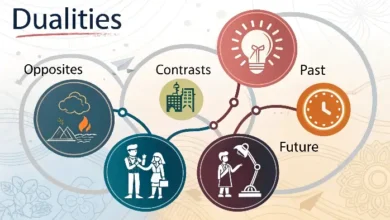Synonyms for ‘Complacency’ and How They Reflect Different Levels of Self-Satisfaction

Synonyms for ‘Complacency’ and How They Reflect Different Levels of Self-Satisfaction
The word “complacency” refers to a state of self-satisfaction, often accompanied by an unawareness of potential dangers, deficiencies, or the need for improvement.
People who are complacent tend to feel content with their current situation, sometimes to the point where they ignore or fail to recognize areas where change or growth is needed. While complacency typically carries a negative connotation, it is important to understand that there are several synonyms that can reflect different levels of self-satisfaction or indifference.
In this article, we will explore the most common synonyms for “complacency,” their meanings, and how they can be used in context.
What Does ‘Complacency’ Mean?

To fully appreciate the synonyms of “complacency,” we first need to define the word. Complacency is the feeling of being satisfied with one’s current state or situation, often accompanied by a lack of awareness or concern about potential risks, problems, or areas for improvement. It’s the kind of mindset where a person is content but perhaps too comfortable, neglecting necessary change or growth.
For example:
- “Her complacency about the situation made her blind to the risks involved.”
- “His complacency at work led to missed opportunities for advancement.”
Complacency implies that a person has reached a point of comfort, but that comfort is based on a false sense of security, often leading to stagnation or missed opportunities.
1. Self-Satisfaction
Self-satisfaction is a term that is very close to complacency, but with a less negative implication. It indicates that a person is pleased with their own achievements or situation. Unlike complacency, which is often tied to ignorance of problems, self-satisfaction can be a healthy and conscious recognition of success. However, if taken to an extreme, it can still lead to stagnation or lack of progress.
Example:
- “She felt a sense of self-satisfaction after completing the project, but she knew she could do better next time.”
Self-satisfaction doesn’t necessarily mean that someone is oblivious to their shortcomings; it simply indicates that they are content with their achievements in the moment.
2. Contentment
Contentment refers to a state of being at peace with one’s circumstances, often reflecting a general sense of happiness and fulfillment. While complacency typically involves a lack of awareness of potential problems, contentment is more about finding joy and peace in what one has. However, just like complacency, contentment can sometimes lead to a lack of motivation to improve or seek change if taken too far.
Example:
- “After years of hard work, he found contentment in his career and personal life.”
Contentment is often viewed as a positive state, indicating satisfaction and peace. However, it can still have its downsides when it leads to an unwillingness to push oneself toward further growth.
3. Indifference
Indifference refers to a lack of interest or concern about something. While complacency involves being self-satisfied and unaware of risks or problems, indifference is a more passive state of disengagement. A person who is indifferent may not care about the consequences of their actions or the state of affairs around them, which can often result in neglect.
Example:
- “His indifference to the team’s success showed in his lack of effort and commitment.”
Unlike complacency, which suggests a passive sense of contentment, indifference is more about the absence of care or concern. It implies emotional disengagement, which can lead to negligence or missed opportunities.
4. Arrogance
Arrogance is a form of self-satisfaction that is rooted in an inflated sense of one’s own worth or abilities. An arrogant person often believes they are superior to others and may neglect important feedback or opportunities for growth. Arrogance is a more extreme and negative version of complacency, as it involves not only being self-satisfied but also dismissing the value of others’ input.
Example:
- “His arrogance led to his complacency, as he felt that he didn’t need to improve his skills any further.”
Arrogance takes complacency to a more negative level, where a person’s overestimation of their abilities or worth makes them resistant to change or improvement.
5. Smugness
Smugness refers to an exaggerated or self-satisfied pride, often accompanied by a sense of superiority. It is closely related to complacency but carries a stronger sense of self-congratulation and sometimes even a bit of condescension. A smug person may feel pleased with themselves but lacks self-awareness and humility, making them less likely to recognize their flaws.
Example:
- “He walked around with a smug look on his face after the success of the project, oblivious to his colleagues’ contributions.”
Smugness reflects an excessive, almost annoying level of contentment with oneself, leading to the belief that further improvement is unnecessary.
6. Laziness
Laziness is often linked to complacency, especially when a person’s lack of action is a result of being overly comfortable or content with their current situation. While complacency involves a mental state of self-satisfaction, laziness refers more to the unwillingness to put in the effort required to make progress. A person who is complacent may be mentally content, but someone who is lazy often refuses to take action to improve or change.
Example:
- “His laziness in addressing his health issues showed how complacent he had become with his lifestyle.”
While complacency can be a mental state, laziness is often more about inaction and avoidance, sometimes resulting from that same contentment.
7. Neglect
Neglect refers to the failure to care for or give attention to something that requires it. It is related to complacency when a person is so content with their current situation that they neglect areas in need of improvement. However, neglect is more active in the sense that it involves a conscious or unconscious decision to disregard responsibilities or areas for growth.
Example:
- “The neglect of the project’s details led to its eventual failure.”
While complacency may be about passive satisfaction with one’s current state, neglect suggests a more deliberate failure to address issues or make necessary changes.
8. Satisfaction
Satisfaction refers to the fulfillment of one’s desires or expectations. It can be positive and indicate that a person has achieved what they set out to do. However, if satisfaction leads to complacency, a person might stop striving for further improvement, believing they have reached their ideal state. While satisfaction can be a healthy and motivating emotion, it can also lead to stagnation if a person becomes too comfortable with their current situation.
Example:
- “He felt a sense of satisfaction after completing the task but knew there was still more to achieve.”
Satisfaction can serve as a motivation for continued effort, but if a person becomes too satisfied with their progress, they might stop pushing themselves to grow.
Conclusion
In this article, we’ve explored several synonyms for “complacency,” each of which reflects different levels of self-satisfaction, engagement, or lack of awareness. While complacency often suggests a passive, unthinking contentment with one’s current state, other synonyms like self-satisfaction, contentment, arrogance, and laziness reflect different degrees of satisfaction, action, and growth.
Understanding these nuances is important when choosing the right word to describe attitudes or behaviors that involve self-satisfaction, indifference, or neglect of opportunities for improvement. Whether you’re discussing personal behavior, workplace dynamics, or societal trends, being aware of these differences can help you communicate more effectively and capture the subtlety of human attitudes.







